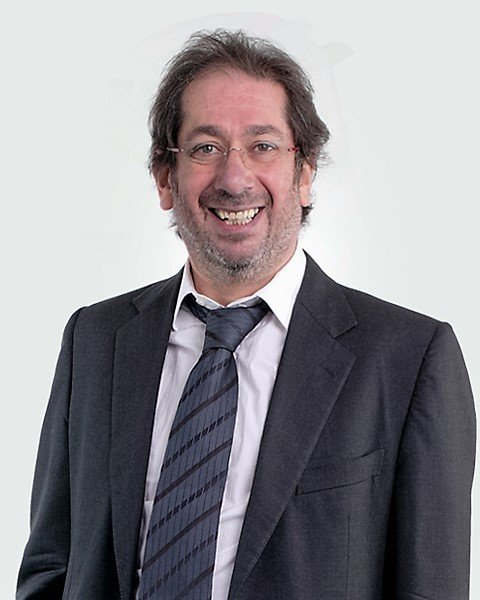More to come out on Hillsborough, says top human rights lawyer

A LEADING human rights solicitor who represented 20 of the Hillsborough families believes more evidence surrounding the disaster which cost lives of 96 Liverpool fans could yet be found.
Elkan Abrahamson, who is on the board of Liverpool-based Jackson Canter, led a consortium of three law firms also including EAD in the city and Butcher Barlow of Bury. Both firms represented one family each.
The recently-concluded inquest into the deaths of the 96 supporters at the FA Cup semi-final in Sheffield between Liverpool and Nottingham Forest in 1989, ruled they were unlawfully killed.
Jurors found the then match commander, Chief Supt David Duckenfield, was “responsible for manslaughter by gross negligence” due to a breach of his duty of care.
The two-year hearing which took place in Warrington was the longest running inquest in legal history.
Abrahamson was originally engaged by Hillsborough campaigner Anne Williams, who died of cancer in 2013.
Williams, the mother Kevin who died in the disaster, was battling the outcome of the original Hillsborough inquest in 1991 – which held the 96 fans deaths were accidental.
That verdict was eventually quashed by the High Court, tragically after he death.
In a bizarre twist of fate, the 62-year-old Abrahamson, who has worked almost all his professional life in Liverpool, also fought his own battle against cancer alongside his brave client, but survived and received the all-clear during the latest inquest.
“It was about 20 years ago that Anne came to me because she was getting nowhere,” said Abrahamson. “We tried lots of different avenues, like attempting to quash the outcome of the first inquest.
“It’s true to say the evidence (of a police cover-up) was always there in cardboard boxes and various places, and there’s probably still stuff that hasn’t been found,” he said.
“One piece of evidence was behind a cabinet in some room and another was in a disused cabinet in another room. And there’s going to be more.
“If you think about it, with something that goes back over 27 years, there’s going to be paperwork misplaced, even if not deliberate, especially in an era which pre-dated computer data filing systems.”
The scale of the police cover-up was no surprise to Abrahamson, who talked almost with compassion about the institutions which suppressed the truth about the Hillsborough disaster.
“Because we knew from the beginning that there was a police cover up, there was very little that’s emerged that’s come as a real surprise,” he continued.
“The surprises would’ve been if senior police officers had admitted it. We got one set of admissions from David Duckenfield, which partly did come as a surprise, but the others haven’t given an inch really.”
Abrahamson was speaking to TheBusinessDesk on the day the IPCC decided to open an investigation into a former press officer for South Yorkshire Police who has alleged she was told to spin news in favour of the force during the Warrington inquest.
This and more means Jackson Canter and Abrahamson’s consortium’s work on the Hillsborough case will go on.
“There are criminal and disciplinary investigations pending that we’re trying to oversee through an independent body,” said Abrahamson.
“The culture within the police force is: ‘I will cover your back, even if what you do is really bad’. That’s the problem we face, not just in SYP, but police forces generally.
“It’s an understandable culture because (in the police) you have to be trained to do anything for your colleague because you’re in very dangerous situations. The number one priority is protecting your colleague.
“And what happens is you import that – because you need to do it when you’re on the street – back to your office.
“It’s a kind of us against the world siege mentality. And it’s not just the police. You see it in all big companies.
“It’s much stronger, the more at risk your personnel are. You find it in the Army as well. And again, it’s understandable because they’re trained from day one to do anything for their colleague.
“But you also have to train them to say: ‘But there’s a limit to that’. You don’t cover them if they act illegally or unethically, and that’s where the real problem is in these organisations.”
Despite Abrahamson’s cool analysis of the issues surrounding the case, he admitted maintaining the any kind of legal objectivity was “just not possible”.
“There were tears in the courtroom among all the barristers and solicitors following the verdict (of unlawful killing), including me,” he said. “It wasn’t just the verdict.
“In the beginning there were pen portraits of all the victims, which underlined the extent of what a human tragedy this was. The jurors were in tears.
“After the verdict, the families were hugging the jurors. I don’t think ever seen that happen before. It was very emotional.”
Abrahamson’s journey into human rights work began in the 1980s with the Toxteth riots in Liverpool.
“Before the riots, the police were using the Public Order Act as a tool to suppress the black population in Toxteth and also to get lots of overtime,” he said.
“At the time, there were plenty of firms that would get people off charges, but they wouldn’t sue the police.
“The general feeling amongst the criminal fraternity was: ‘Don’t sue the police, they’ll just get you back, it’s not worth it’.
“But we felt that unless we sued the police they wouldn’t change the practice. So we began suing them for compensation because it was the only way to make them change what they were doing. I think it had an effect. We were quite successful.
“Suddenly, by winning a case against the police, the effect it had on those communities was amazing. If anything, that’s what inspired me to be a civil rights lawyer.”
The reputational spin-off for Jackson Canter in its specialism in human rights is that it now has an actions against the police and inquest department which has grown in the last couple of years.
Meanwhile, Abrahamson’s journey to “educate orgainsations” to behave better has also led to the formulation of a business ethics department at Jackson Canter, based around the United Nationals Guiding Principles for Business.
“They’ve come up with a set of guiding principles, not laws yet, but they will be in five years, as to how businesses should conduct themselves,” he said.
“So what we do is an ethical audit of the business: Are they paying a living wage? What is the overtime policy? Is it oppressive? Can you require people to work 16 hours a day? What’s the whistle-blowing policy? What do people do with grievances and things like that.
“There’s also the modern slavery act. You’re looking at people’s supply chain and where they buy their goods from. How do they know the goods aren’t made with child labour? Stuff like that.
“We’ve been up and running for six months and there are three of us on the team.
“Businesses will slowly cotton on. For example, any business with a turnover of more than £36m now has to incorporate in its annual report information about its anti-slavery policy. We’ve got one client for whom we’re doing that and we’re expecting more.”








